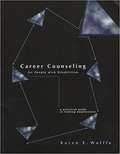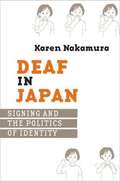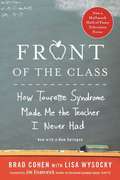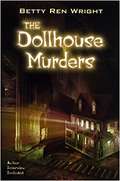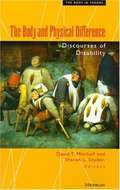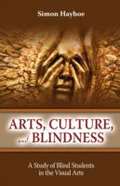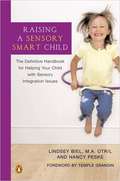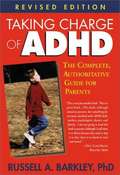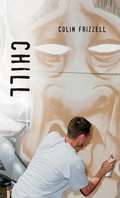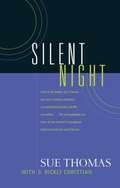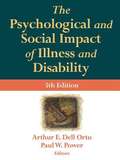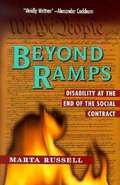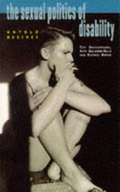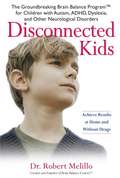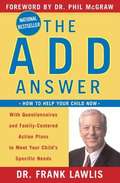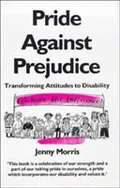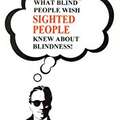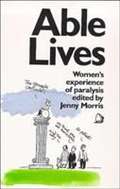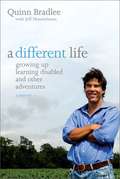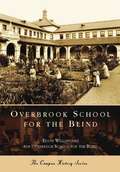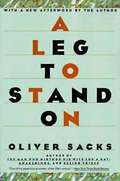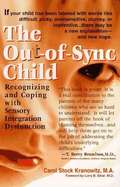- Table View
- List View
Career Counseling for People with Disabilities: A Practical Guide to Finding Employment
by Karen E. WolffeA text for use in courses in rehabilitation counseling, educational psychology, and special education, also useful for practicing counselors and educators. Section I introduces the field, types of clients, theories, and legislation. Section II details five key career counseling content areas, and Section III addresses disability- specific considerations. Section IV describes local, state, and national resources and lists helpful phone numbers. Includes chapter-opening vignettes and application activities, and five appendices of reproducible handouts to use with clients. Annotation copyrighted by Book News, Inc., Portland, OR
Deaf in Japan: Signing and the Politics of Identity
by Karen NakamuraUntil the mid-1970s, deaf people in Japan had few legal rights and little social recognition. Legally, they were classified as minors or mentally deficient, unable to obtain driver's licenses or sign contracts and wills.
Front of the Class: How Tourette Syndrome Made Me the Teacher I Never Had
by Brad Cohen Lisa WysockyAs a child with Tourette syndrome, Brad Cohen was ridiculed, beaten, mocked, and shunned. Children, teachers, and even family members found it difficult to be around him. As a teen, he was viewed by many as purposefully misbehaving, even though he had little power over the twitches and noises he produced, especially under stress. Even today, Brad is sometimes ejected from movie theaters and restaurants. But Brad Cohen's story is not one of self-pity. His unwavering determination and fiercely positive attitude conquered the difficulties he faced in school, in college, and while job hunting. Brad never stopped striving, and after twenty-four interviews, he landed his dream job: teaching grade school and nurturing all of his students as a positive, encouraging role model.
The Dollhouse Murders
by Betty Ren WrightTwelve-year-old Amy knows there is some connection between Aunt Claire's old dollhouse in the attic and a deadly secret from years ago.<P><P> Winner of Pacific Northwest Library Association’s Young Reader’s Choice Award
The Body and Physical Difference: Discourses of Disability
by David T. Mitchell Sharon L. SnyderFor years the subject of human disability has engaged those in the biological, social and cognitive sciences, while at the same time, it has been curiously neglected within the humanities.The Body and Physical Difference seeks to introduce the field of disability studies into the humanities by exploring the fantasies and fictions that have crystallized around conceptions of physical and cognitive difference. Based on the premise that the significance of disabilities in culture and the arts has been culturally vexed as well as historically erased, the collection probes our society's pathological investment in human variability and "aberrancy." The contributors demonstrate how definitions of disability underpin fundamental concepts such as normalcy, health, bodily integrity, individuality, citizenship, and morality--all terms that define the very essence of what it means to be human. The book provides a provocative range of topics and perspectives: the absence of physical "otherness" in Ancient Greece, the depiction of the female invalid in Victorian literature, the production of tragic innocence in British and American telethons, the reconstruction of Civil War amputees, and disability as the aesthetic basis for definitions of expendable life within the modern eugenics movement. With this new, secure anchoring in the humanities, disability studies now emerges as a significant strain in contemporary theories of identity and social marginality. Moving beyond the oversimplification that disabled people are marginalized and made invisible by able-ist assumptions and practices, the contributors demonstrate that representation is founded upon the perpetual exhibition of human anomalies. In this sense, all art can be said to migrate toward the "freakish" and the "grotesque." Such a project paradoxically makes disability the exception and the rule of the desire to represent that which has been traditionally out-of-bounds in polite discourse. The Body and Physical Difference has relevance across a wide range of academic specialties such as cultural studies, the sociology of medicine, history, literature and medicine, the allied health professions, rehabilitation, aesthetics, philosophical discourses of the body, literary and film studies, and narrative theory. David T. Mitchell is Assistant Professor of English, Northern Michigan University. Sharon L. Snyder teaches film and literature at Northern Michigan University.
Arts, Culture, and Blindness: A Study of Blind Students in the Visual Arts
by Simon HayhoeThis book explores one of the most powerful myths in modern society: the myth that blind people are incapable of understanding and creating visual arts.
Raising a Sensory Smart Child: The Definitive Handbook for Helping Your Child with Sensory Integration Issues
by Nancy Peske Lindsey BielTwo experts tackle one of the most formidable and pervasive developmental issues facing children today: Sensory Integration (SI) Dysfunction.
Taking Charge of ADHD: The Complete, Authoritative Guide for Parents (Revised Edition)
by Russell A. BarkleyEmpowers parents of children with ADHD by giving them a step-by-step plan for behavior management, hard data on diagnosis and treatment, strategies for helping children succeed at school and in social situations, and information on advances in genetic and neurological research that enhance understanding of the causes of ADHD. Includes an annotated list of books, organizations, and Internet resources. This edition is revised to incorporate the most current information. Barkley is director of psychology and professor of psychiatry and neurology at the University of Massachusetts Medical Center. Annotation c. Book News, Inc., Portland, OR (booknews.com)
Skychild
by Suzanne MorrisAt two, Ian Maguire is both a beautiful and very gifted little boy, a child that his parents, Monica and Forrest, are justifiably proud of. But Ian is special in other ways. Increasingly unresponsive to the world around him, he is content only when alone, rocking in his crib or playing obsessively with his favorite toy, a pocket mirror of his mother's. Forrest, preoccupied with his high- pressure job, refuses to see anything unusual about his son's behavior, and retreats ever further into his work. Monica, more anxious than even she will admit, finally takes Ian to be tested. The results are shattering. Her son, the doctors tell her, is probably autistic, certainly psychotic, and there is little hope of improvement. Confirming her deepest fears, the diagnosis plunges Monica into an agony of uncertainty and guilt. Is Ian's sickness the consequence of Forrest's remoteness, or must she now reveal a secret about Ian's birth she has kept even from her husband? Confused, her marriage coming apart, Monica sets out to find her own answers. She takes Ian to Galveston Bay, to a place she knew as a child, and, in a startling climax, she discovers the love and understanding they have both needed so badly.
Chill
by Colin FrizzellHow far will Chill and Sean go to expose a teacher's deception? (Orca Soundings)
Silent Night
by Sue Thomas<P>Some people may have considered Sue Thomas's deafness a liability. The FBI considered it an asset.... <P>Growing up in northeastern Ohio, Sue Thomas was like any other toddler. But one evening while watching television with her family, suddenly she couldn't hear the sound of the program. The next morning Sue didn't respond to anyone's voice. Her parents rushed her to their family doctor. He delivered devastating news: eighteen month-old Sue had experienced a sudden and total hearing loss. <P>Sue's parents made a lifelong commitment to help her live as normal a life as possible in the hearing world. With professional assistance, Sue learned to speak and lip read. When school presented challenges, Sue worked harder, eventually earning a B. S. degree and completing graduate work in political science and international relations. <P>A door opened at the FBI for Sue to begin a training program for deaf people to classify fingerprints. But when agents realized Sue's uncanny ability to read lips, they approached her about undercover surveillance. Sue excelled at her job, exceeding her family's expectations. <P>Yet something still seemed to be missing in her life. Refocusing her goals on helping others, today Sue is a motivational speaker with a deeper purpose who appears regularly before civic, professional, and church groups. Silent Night tells her inspiring story.
The Psychological and Social Impact of Illness and Disability (5th Edition)
by Paul W. Power Arthur E. Dell OrtoThis collection, which defines disability very broadly to include post-traumatic stress and normal aging, includes classic articles and discussion questions as well as new material on illness. With a few exceptions it concentrates on the needs of caregivers and those who seek to rehabilitate people with disabilities. Therefore articles cover such issues as definitions of disability and current or past models, shifts in expectations of care demanded by the disabled, perceptions of stages of adjustment to disability, differences in the experience of men and women, the difficulties in discerning the quality of life from outside disability, sexuality, methods of intervention and treatment to promote acceptance o a disability, family issues surrounding life and death, special resources such as assistive technology and spirituality, new applications of eugenics and euthanasia, and "quality aging." Includes exercises and narratives about disability, primarily by caregivers.
Beyond Ramps: Disability at the End of the Social Contract
by Marta RussellThe Social Contract -- Rousseau's famous term concerning the bond between a government and its people -- has been sold to the highest bidder. Freedom is reserved only for markets in a society increasingly strangled by corporate power. "Empowerment" is the new definition of destitution. By looking at the struggles of the disabled faced with the end of social services, Ending the Social Contract as We Know It provides a powerful warning: the disabled are as canaries in a coal mine, and their maltreatment is a harbinger of things to come for the rest of us. In a tightly woven argument, Marta Russell shows how the onslaught of corporate power facing the disabled -- from issues like genetic screening, to restricted access to health care, to welfare reform -- will shortly be faced by a much broader segment of society.
The Sexual Politics of Disability: Untold Desires
by Tom Shakespeare Dominic Davies Kath Gillespie-SellsThis book, based on first-hand accounts, takes a close look at questions of identity, relationships, sex, love, parenting and abuse, and demolishes the taboo around disability and sex.
Disconnected Kids: The Groundbreaking Brain Balance Program for Children with Autism, ADHD, Dyslexia, and Other Neurological Disorders
by Robert MelilloBased on years of scientific research and used to successfully treat approximately 1,000 children to date, Dr. Robert Melillo's Brain Balance Program addresses not just the symptoms of what's plaguing our kids but the cause. In Disconnected Kids, Dr. Melillo presents an individualized at-home program that allows readers to assess, address, and even correct their child's neurological disconnects using simple physical, sensory, and academic exercises.
The ADD Answer: How to Help Your Child Now
by Frank LawlisEvery year, 17 million new cases of attention deficit disorder, or ADD, are diagnosed in children. But medications designed to treat the disorder don't work for many children and often leave families frustrated and searching for more options. In The ADD Answer, Dr. Frank Lawlis draws upon his thirty-five years of experience as a clinical and research psychologist to show parents how they can reclaim their central role in healing their children with comprehensive step-by-step advice on dealing with the problems of ADD. His approach blends the latest medical, nutritional, and psychological treatments that can increase brain function with expert insight into the emotional--and spiritual--support kids need. An inspiring and essential guide, The ADD Answer will help every family facing the challenges of ADD create a more loving, healthy environment necessary for their child to thrive.
My Religion
by Helen KellerHere is a mind kept singularly pure from childhood; here is a religious experience unhampered by the blindness of any sectarianism; here is a spiritual insight, a gift of perception, undulled by absorption in the things of sense life. Here is one in whom the Lord worked a miracle, and Helen Keller declares to us "One thing I know, that whereas I was blind, now I see."
Pride Against Prejudice: Transforming Attitudes to Disability
by Jenny MorrisDrawing on her own and other experiences of disability, Jenny Morris, editor of Able Lives, confronts the nature of the prejudice against disabled people. Pride Against Prejudice challenges the reality of being different, covering current and historical debates on the quality of disabled people's lives; the way disability is represented within Western culture; institutionalisation and independence; feminist research and 'community care'; and the politics of the disability movement. For too long, non-disabled people have defined the experience of disability and had control over disabled people's lives. Pride Against Prejudice has grown out of the increasing collective organisation of disabled people and is part of an emerging disability culture. Jenny Morris argues her case with energy, authority and conviction.
What Blind People Wish Sighted People Knew About Blindness! (Revised Edition)
by Harry Martin<P>Harry Martin became blind as the result of an eye disease he contracted while serving in the Navy in 1973. His eye condition began as a case of severe visual impairment, and progressed to total blindness over a period of twenty years. Harry lives with his wife, Carol, and his guide dog, Frankie in Orlando, Florida. <P>THIS BOOK IS A MUST READ FOR ALL SIGHTED PEOPLE! <P>Whether you know a blind person or not, you must read this book. The reader will gain a new understanding of what it is like to be blind, and to go blind. Find out why some blind people can see. Learn how guide dogs work. Discover how blind people do things without sight. If you have a blind relative, friend, spouse, or co-worker; this fascinating book will tell you how to relate to them better. Teachers, this book is an outstanding educational tool. Use it to teach your students all about blindness and the blind.
Able Lives: Women's Experience of Paralysis
by Jenny MorrisThis is a book written by spinal cord injured women who want to share their experiences with newly injured women and their friends and relatives, and to impress our concerns upon the general public and professionals. It is part of a growing movement to bring disability issues which previously have been kept private - behind the closed doors of individual lives - out into the open. We hope there will be many more books like this one to follow.
Eyes of a Stranger
by Sharon E. HeiselMarissa, a shy self-conscious girl with a twisted leg, is attracted to a strikingly handsome visitor to her uncle's carousel but begins to suspect that he is a psychotic serial killer.
A Different Life: Growing Up Learning Disabled and Other Adventures
by Quinn Bradlee Jeff HimmelmanBorn with a hole in his heart that required invasive surgery when he was only three months old, Quinn Bradlee suffered from a battery of illnesses: seizures, migraines, fevers from an early age. But it wasn't until he was fourteen that Bradlee was correctly diagnosed with Velo-Cardio-Facial Syndrome (VCFS), a widespread, little-understood disorder that is expressed through a wide range of physical ailments and learning disabilities. Ten percent of the population is affected by a learning disability, but few of us understand what being learning disabled (LD) is really like. In this funny, moving, and often irreverent book, Bradlee tells his own inspirational story of growing up as an LD kid and of doing so as the child of larger-than-life, formidably accomplished parents: long-time Washington Post executive editor Ben Bradlee and bestselling author Sally Quinn. From his difficulties reading social cues, to his cringe-worthy loss of sexual innocence, Bradlee describes the challenges and joys of living "a different life" with disarming candor and humor. By the end of A Different Life he will have become, if not your best friend, one of your favorite people.
Overbrook School for the Blind (The Campus History Series)
by Edith WilloughbySince 1832, Overbrook School for the Blind has been a leader in providing educational programs to children and young people who are blind and visually impaired. Julius Friedlander, the schools founder, and other early leaders worked hard to inform people about the educational needs of the children. Their efforts resulted in providing reading material for the blind and Overbrook's production of the first embossed book in America, the Gospel of Mark, and the publication of the first magazine for the blind, Lux en Tenebrae. Offering students access to all educational opportunities continues to be the schools main goal, and in the early 1990s, Overbrook pioneered the development of a school wide technology initiative that provided students with the ability to access the curriculum, communicate, and be successful in employment. Through rare photographs and documents, Overbrook School for the Blind offers a glimpse at the schools role in reaching out to people who are blind and it showcases how Overbrook has helped thousands of students to achieve independence, self-confidence, and the skills to experience active and fulfilling lives.
A Leg to Stand On
by Oliver SacksDr. Oliver Sacks's books "Awakenings, An Anthropologist on Mars" and the bestselling "The Man Who Mistook His Wife For a Hat" have been acclaimed for their extraordinary compassion in the treatment of patients affected with profound disorders. In "A Leg to Stand On", it is Sacks himself who is the patient: an encounter with a bull on a desolate mountain in Norway has left him with a severely damaged leg. But what should be a routine recuperation is actually the beginning of a strange medical journey when he finds that his leg uncannily no longer feels part of his body. Sacks's brilliant description of his crisis and eventual recovery is not only an illuminating examination of the experience of patienthood and the inner nature of illness and health but also a fascinating exploration of the physical basis of identity. Copyright © Libri GmbH. All rights reserved.
The Out-of-Sync Child: Recognizing and Coping with Sensory Integration Dysfunction
by Carol Stock Kranowitz"Difficult." "Picky." "Oversensitive." "Clumsy." "Unpredictable." "Inattentive." Children who have been labeled with words like these may actually be suffering from Sensory Integration Disorder--a very common, but frequently misdiagnosed, condition that can manifest itself in excessively high or low activity levels, problems with motor coordination, oversensitivity or undersensitivity to sensations and movements, and other symptoms. This guide, written by an expert in the field, explains how SI Dysfunction can be confused with ADD, learning disabilities, and other problems, tells how parents can recognize the problem, and offers a drug-free treatment approach for children who need help.
